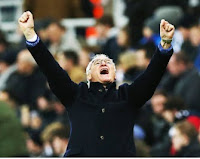New York Times editor Dean Baquet on the paper's investigation into President Trump's tax affairs: "We are publishing this report because we believe citizens should understand as much as possible about their leaders and representatives — their priorities, their experiences and also their finances...Some will raise questions about publishing the president’s personal tax information. But the Supreme Court has repeatedly ruled that the First Amendment allows the press to publish newsworthy information that was legally obtained by reporters even when those in power fight to keep it hidden. That powerful principle of the First Amendment applies here."
David Corn on Twitter: "To all those newspapers with headlines proclaiming the debate was chaotic and disorderly without tying that to Trump: If a man runs into a house, throws gasoline everywhere, and lights a match, the headline should be 'Arsonist Attacks Home,' not 'Fire Breaks Out'."
Andrew Neil quoted by the Financial Times on the planned GB News 24-hour television channel which he will chair and also present programmes: “GB News is the most exciting thing to happen in British television news for more than 20 years. We will champion robust, balanced debate and a range of perspectives on the issues that affect everyone in the UK, not just those living in the London area.”
Andrew Neil on Twitter: "With heavy heart I announce I will be leaving the BBC. Despite sterling efforts by new DG to come up with other programming opportunities, it could not quite repair damage done when Andrew Neil Show cancelled early summer + Politics Live taken off air. They were/are the best of the best. If they can make me look good, they can make anybody look good. There could have been a different outcome but for reasons too dull to adumbrate, we’ll leave it there. I wish the BBC and the new DG well. The BBC will always be special to me."
David Dimbleby interviewed in The Times [£]: “I’m a broadcaster, not a bureaucrat. The BBC’s morale is always at an all-time low, it’s always looking at its navel. I am very dismayed by the [Boris] Johnson attacks on the institution. I think they are crowd-pleasing; I think they are quite dangerous; I don’t think they will work...I’ve had him on Question Time a couple of times, way back. He was an entertainer, you don’t really know what he is getting at most of the time, he just blathers.”
Rod Liddle in The Spectator: "In the light of recent articles in The Spectator, I think it vital I should point out here and now that I thought Boris Johnson was crap long before Toby Young and our editor, Fraser Nelson, did. I remember suggesting more than a year ago that the entire Johnson clan was a bit thick and borne aloft simply by depthless ambition and droit de seigneur. I felt a bit bad about it because Boris was a former boss and also a kind of mate. But you have to be ruthless in this job, get in quick with your bludgeon, even if its your own granny on the end of it."
Reuters Institute report on how local and regional news organisations across Europe have embraced the shift to paid content online: "In the last two years, all of the case newspapers have shifted from digital strategies emphasising the pursuit of audience reach, monetised through advertising or a blend of paid-content models and auxiliary sources, to a focus on building lasting relationships with readers who will pay for online content in the form of subscriptions, memberships, access to premium articles, donations, or micropayments."
World News Day 2020 — which took place on Monday [September 28] — aimed: "To raise awareness of the critical role that journalists play in providing credible and reliable news, to help people make sense of — and improve — the rapidly changing world around them. At a time when journalism has the power to save lives and build trust, World News Day is a powerful reminder that journalism can be a force for good."
Alan Rusbridger in the Guardian on Sir Harold Evans: "He could do it all. Write like a dream; design with impact; edit with flair; dash off the perfect headline; crop a picture; see off a writ. There was no one who knew more about the craft of journalism, nor anyone to match his passion for communicating that craft – documented in numerous textbooks that were, in turn, studied by generations of would-be journalists...He knew why journalism mattered. He gave journalism a good name. He reminded us why we wanted to be journalists and what, at its best, journalism could – and should – be. None of us should forget that."




























